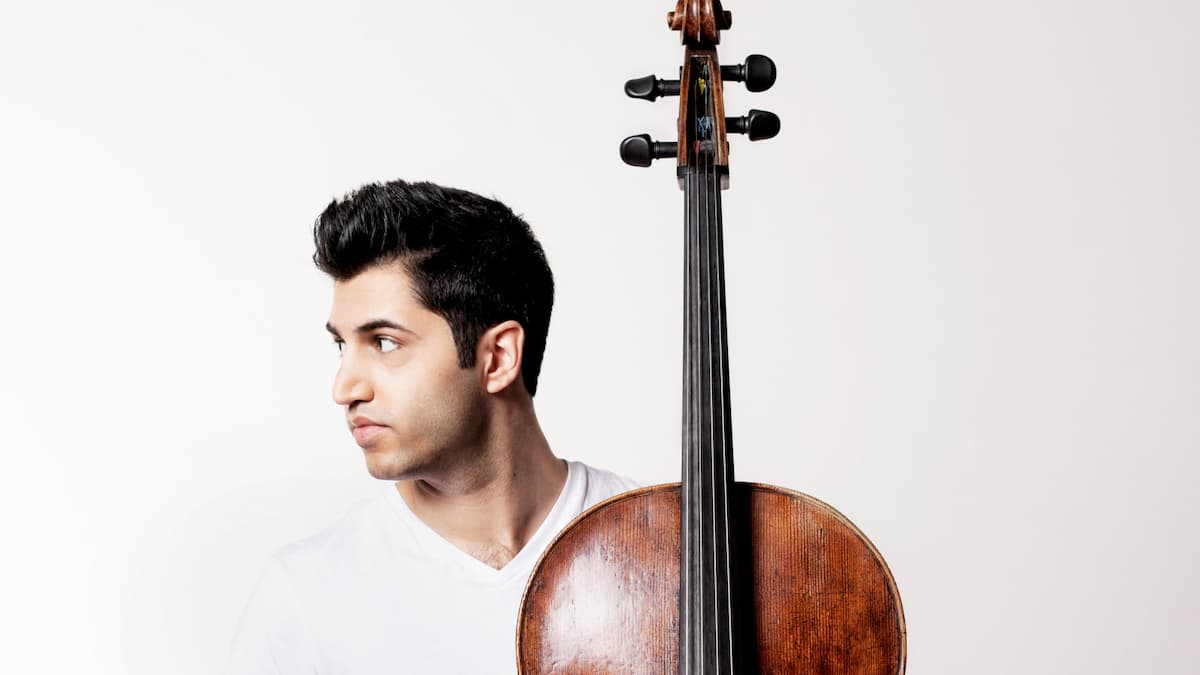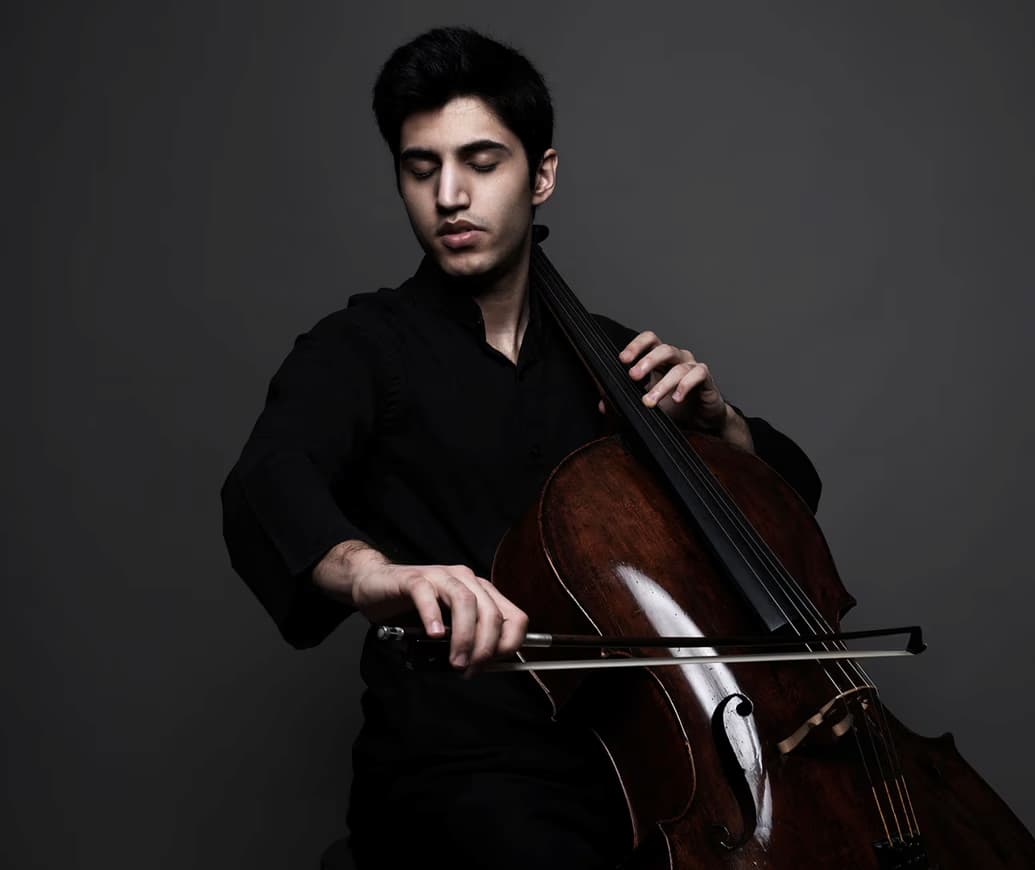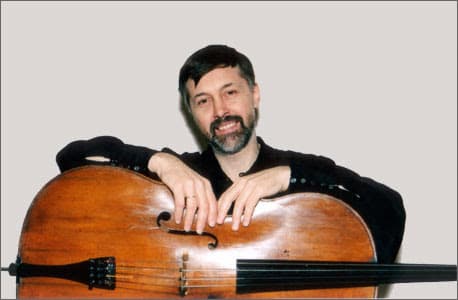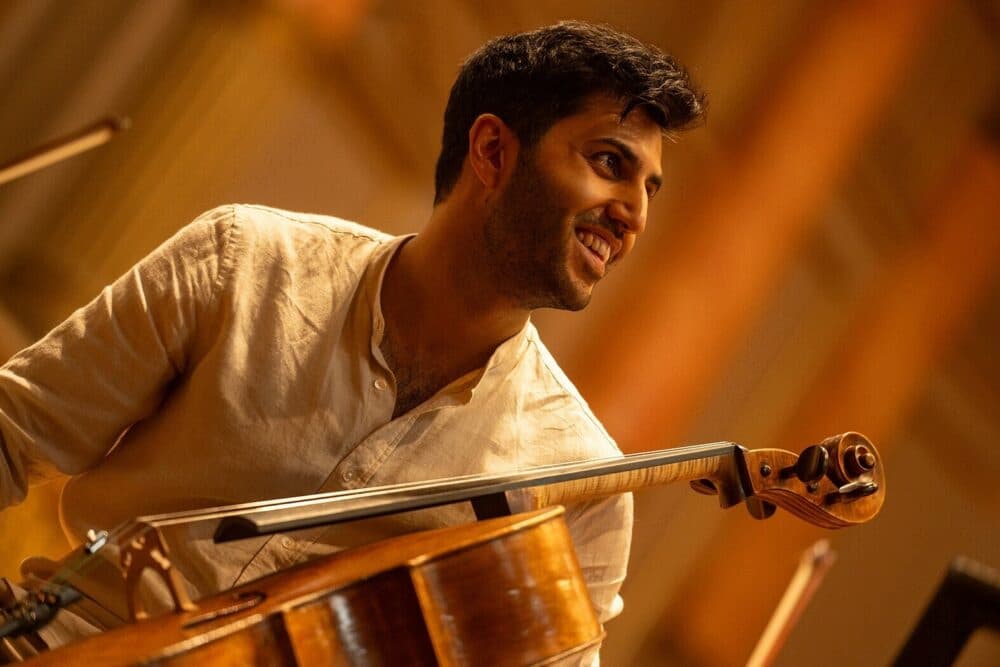His playing has been characterised by a depth of expression, sense of individuality, and technical mastery. But what is more, cellist Kian Soltani convinces with a charismatic stage presence and his ability to create an immediate emotional connection with his audience. A winner of the Paulo Cello Competition, Soltani has signed an exclusive recording contract with Deutsche Grammophon, propelling him from rising star to one of the most talked about cellists performing today.
Kian Soltani Performs Bach’s “Sarabande” from Cello Suite No. 3
A Musical Family

Kian Soltani
Kian Soltani was born on 3 June 1992 in Bregenz, Austria, into a family of Persian musicians. As he recalled, “Everyone was playing music at home, my parents, my aunt, my uncle… everybody really.” His father would often play Persian music at home, but Kian was initially more interested in the cello.
Kian’s cousin, three years older than him, “was my idol, and he played the cello. Since I always wanted to do whatever he was doing, I wanted to play cello too!” Kian’s cousin started cello lessons at the age of four, so when it came to his fourth birthday, Kian started as well. They shared a number of teachers, and his mother, who also loved the cello, “was very happy I picked it up.”
Claude Debussy: Cello Sonata in D Minor (Kian Soltani, cello; Daniel Barenboim, piano)
Studying Under Ivan Monighetti

Kian Soltani © LA Phil
After receiving rudimentary cello lessons locally, it was time to look for a distinguished teacher. The family decided that Kian would take instruction from Ivan Monighetti, a Russian cellist and conductor of Swiss descent. Monighetti was based at the Musik-Akademie Basel, which meant a 6 hour journey for weekly lessons. The lessons weren’t always on weekends, “and my father drove me in the car. I could sleep in the car, so it was more of a strain on my father.”
Soltani joined Ivan Monighetti’s class at the Basel Music Academy at the age of 11. As Soltani remembers, “he had a very old school way of teaching, and was not looking for quick results.” Monighetti had been a student of Rostropovich in Moscow, and he passed on the spirit of his own lessons to Soltani. “He was an incredibly slow teacher, so he would spend a lot of time with each piece, to really work on every bar and develop it.”
Kian Soltani Performs Popper’s Hungarian Rhapsody
General Education

Ivan Monighetti
Monighetti’s lessons were not entirely focused on the cello. Soltani recalls, “I learned a lot about the general approach to musical pieces and everything related to them. I sometimes had to play the piano in class. I had to accompany him on the piano. I had to recite poems, sing songs, read books recommended by him, listen to concerts, walk and jog together. He treated me like a son. We have a very personal relationship.”
Soltani openly admits that for the first 2 to 3 years, he didn’t understand everything. And in an interview he relates a funny episode. “I remember once, Sol Gabetta was his assistant, he asked me to learn this Mozart aria and sing it to her on my knees in front of the whole class, it was the most embarrassing moment of my life! But all this is meant to help me overcome normal social fears and boundaries.”
Kian Soltani Performs Soltani’s Persian Fire Dance Op. 1
Cello Heroes

Kian Soltani
Soltani count’s Yo-Yo Ma among his cello heroes, especially his ability to communicate across cultures and to switch through different genres while keeping a high quality of playing. He also admires Steven Isserlis, and his ability to explore every note, the harmony and the structure to sing really beautiful phrases. And then there is Giovanni Sollima, “a musician reinventing what it means to be a cellist.”
Soltani has a large social media following, and he sees it as a positive way of connecting. “Many people can’t come to a concert, so social media is a great way to share music, especially with young people. 90% of my followers are under 30 years old!” For Soltani, social media “has created the next level of sharing,” and it is a way to remove the fear from classical music, “to show that we are normal people, that we have other interests outside of music.”
For more of the best in classical music, sign up for our E-Newsletter
